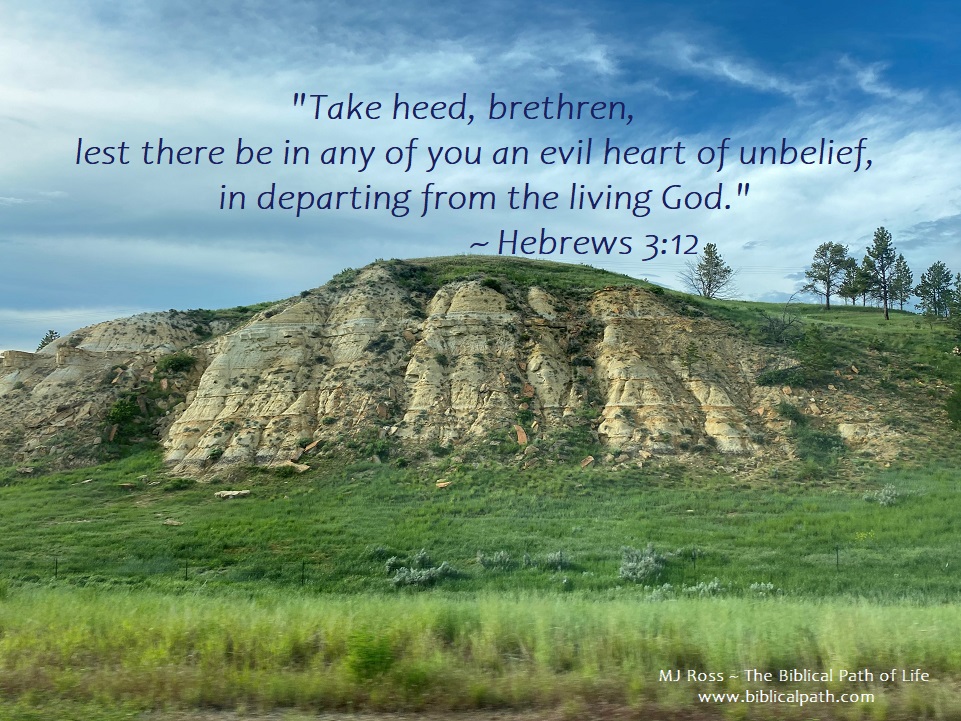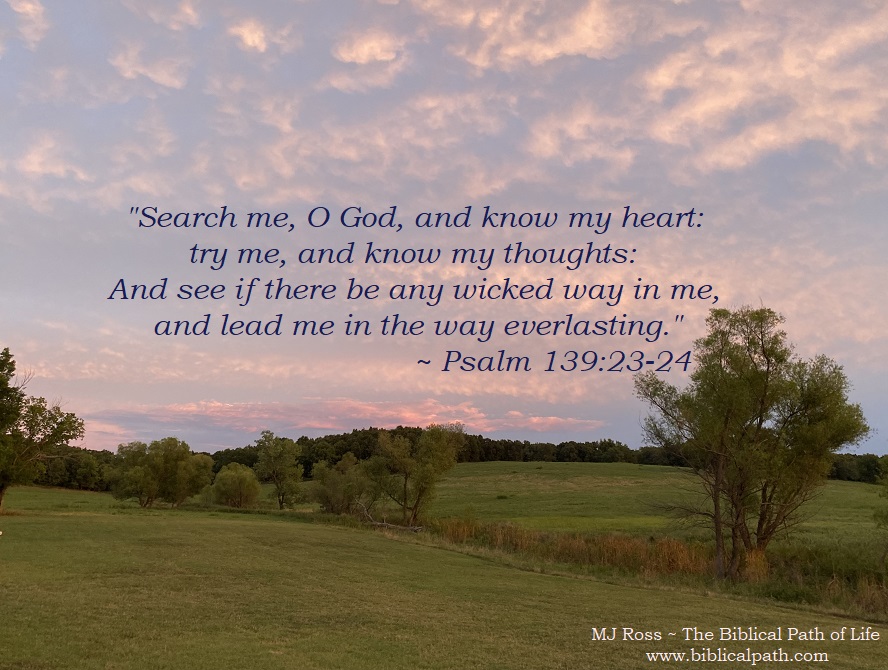
“Take heed, brethren, lest there be in any of you an evil heart of unbelief, in departing from the living God.”
Hebrews 3:12
We are warned of something that will happen in the “latter times”: A departing from the faith. “1. Now the Spirit speaketh expressly, that in the latter times some shall depart from the faith, giving heed to seducing spirits, and doctrines of devils; 2. Speaking lies in hypocrisy; having their conscience seared with a hot iron” (1 Timothy 4:1-2). The departing from the Christian faith is called apostasy. See what that word means: Apostasy is “a falling away… the act of a professed Christian, who knowingly and deliberately rejects revealed truth regarding the deity of Christ and redemption through His atoning sacrifice. It is different from error, which may be the result of ignorance. Apostasy departs from the faith, but not from the outward profession of it (see 2 Timothy 3:5: “Having a form of godliness, but denying the power thereof: from such turn away”). Apostasy is irremediable and awaits judgment. Apostates apparently can only be professors and not actual possessors of true salvation…”
This is not new. However, it seems to be more prevalent in these days. Jesus dealt with it when He was on the earth. Remember – Jesus knew what was in man’s heart (see John 2:24-25). “64. But there are some of you that believe not. For Jesus knew from the beginning who they were that believed not, and who should betray him. 65. And he said, Therefore said I unto you, that no man can come unto me, except it were given unto him of my Father. 66. From that time many of his disciples went back, and walked no more with him” (John 6:64-66). Even many people who met Jesus (and even became His “disciples”) turned from Him. We have a warning of this behavior: “Take heed, brethren, lest there be in any of you an evil heart of unbelief, in departing from the living God” (Hebrews 3:12). They did not believe in Jesus, departing from the living God that walked among them. For those who chose to turn away, that is apostasy.
The Bible has much to say about those who become a “disciple” (what we might call a Christian today), but later chooses to turn and live that life contrary to what the Bible teaches. There is a great difference between one who professes Christ and one who possesses Christ. One must understand what a believing faith is. Faith means “a technical term indicative of the means of appropriating what God in Christ has for man resulting in the transformation of man’s character and way of life; i.e.: namely, Christian faith; a firm and confiding belief in Jesus and His gospel.” The Bible teaches that when one has true faith in Jesus, that old life passes away for they become a new creature in Christ. “Therefore if any man be in Christ, he is a new creature: old things are passed away; behold, all things are become new” (2 Corinthians 5:17). (See also Romans 12:1-2.)
Read about one who professes Christ only: “What doth it profit, my brethren, though a man say he hath faith, and have not works? can faith save him?” (James 2:14). Faith in James 2:14, 17, 18, 24, 26 means “simply a knowledge and assent to religious truths without good works and therefore, false faith.” So according to this definition, a person who says they have faith, yet there is no evidence (appropriating what God in Christ has for man resulting in the transformation of man’s character and way of life), that is not true faith; it is a false faith. “17. Even so faith, if it hath not works, is dead, being alone. 18. Yea, a man may say, Thou hast faith, and I have works: shew me thy faith without thy works, and I will shew thee my faith by my works. 19. Thou believest that there is one God; thou doest well: the devils also believe, and tremble. 20. But wilt thou know, O vain man, that faith without works is dead?” (James 2:17-20). These verses describe a dead faith. Saying one believes in God (or Jesus) does not make one a true Believer. Remember that the devils believe, but we know they are not Christians. The works (transformation of man’s character and way of life) is what reveals whether that one had become a new creature in Christ. Remember what Jesus said: “Not every one that saith unto me, Lord, Lord, shall enter into the kingdom of heaven; but he that doeth the will of my Father which is in heaven” (Matthew 7:21). One who does His will reveals the faith that is within.
Understand the truth of Jesus Christ: His death, burial, and resurrection enabling one to gain a new life in Him: see 2 Corinthians 5:21 “For he hath made him to be sin for us, who knew no sin; that we might be made the righteousness of God in him.” If you are not sure, Jesus told you what to do: “Search the scriptures; for in them ye think ye have eternal life: and they are they which testify of me” (John 5:39). Go back and read what the Bible teaches about Jesus and why He came. To search the Scriptures and miss Christ would be a great tragedy. However, after one has learned the truth of Jesus Christ, then chooses to turn from Him, that is eternally fatal. For a vivid picture of this, read 2 Peter 2:20-22. It is a description of one who has heard the truth, maybe even having a temporary outward change, yet ends up turning from that truth. That one has no hope.
Do you have only a professing faith?
Or
Do you possess a life transforming faith?






